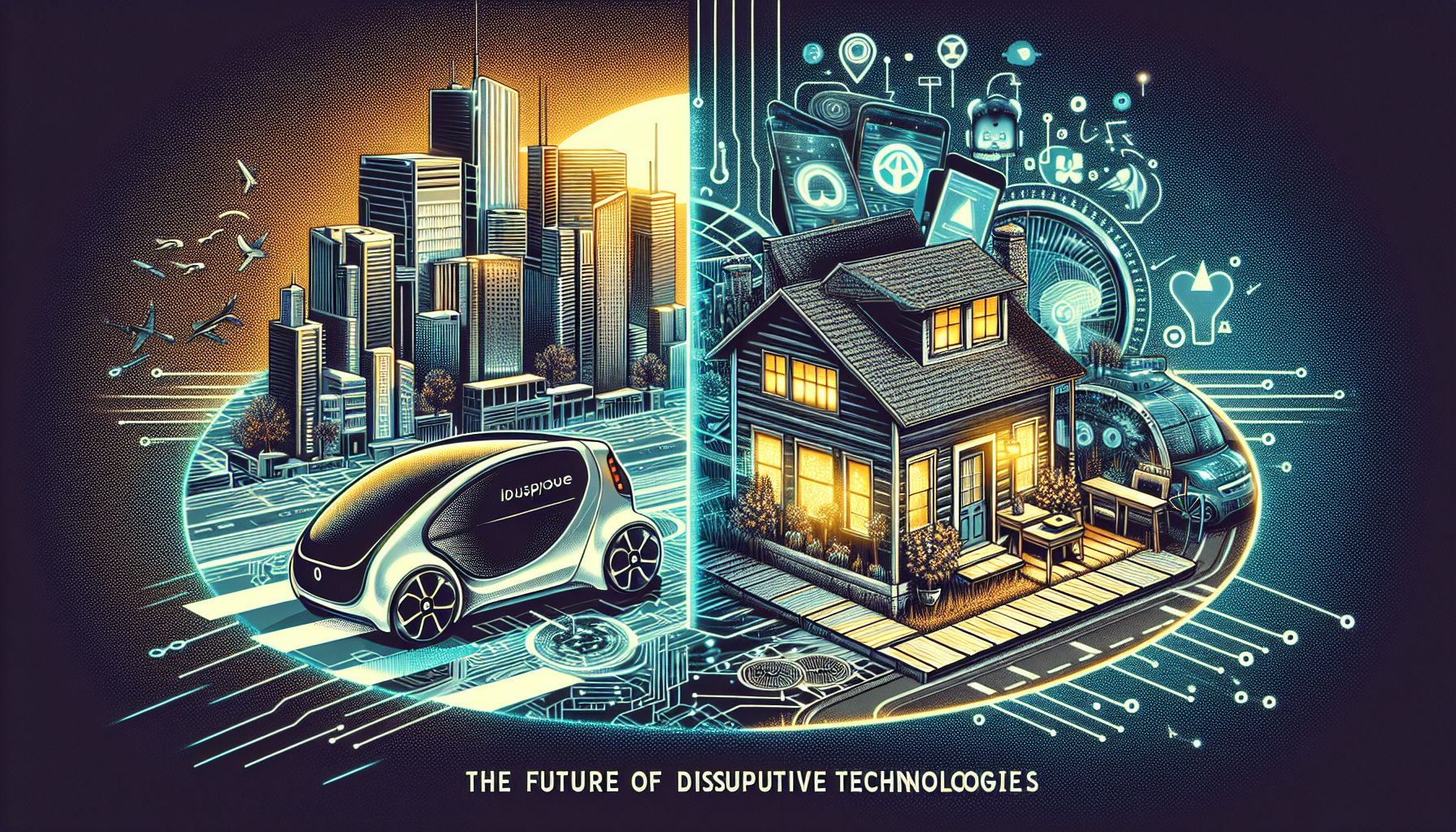📌 Let’s explore the topic in depth and see what insights we can uncover.
⚡ “Your next taxi ride could be in a flying car and your future vacation rental might be a capsule on the moon! Welcome to the reality of disruptive technologies with trailblazers like Uber and Airbnb.”
In the last decade, the world has witnessed an unprecedented wave of disruptive technologies that have fundamentally redefined the way we live, work, and play. At the forefront of this revolution are companies like Uber and Airbnb, whose innovative business models have challenged traditional industries and set new standards for service delivery. Their success is a testament to the transformative power of technology, and a demonstration of how disruptive innovations can create new markets and value networks. But beyond their commercial success, Uber and 🧩 As for Airbnb, they’re shaping the future in ways that were unimaginable a few years ago. This blog post delves into the disruptive technologies of these two companies, exploring how they’re changing the game and what their trajectories might mean for the future. Let’s take a ride with Uber and book a stay with Airbnb, to get a closer look at the future they’re building.
🚖 Uber: Turning Transportation on its Head

Uber and Airbnb: Redefining Tomorrow's Tech Landscape
Before Uber, hailing a taxi was often an exercise in frustration. You had to either call and wait, or try to flag one down on the street. Then came Uber, a simple app that turned every smartphone into a potential taxi dispatch center. Uber’s disruptive technology is its app, which connects riders and drivers directly, bypassing traditional taxi dispatch systems. But the real innovation lies not in the app itself, but in its business model. Uber doesn’t own any cars; instead, it provides a platform where car owners can make money by giving rides to people who need them. This model, known as the sharing economy, has since been emulated by many other businesses. By leveraging the power of smartphones, GPS technology, and a flexible workforce, Uber has managed to offer a convenient, reliable and often cheaper alternative to traditional taxis. Its success has not only disrupted the taxi industry, but also sparked a revolution in urban transportation, with implications for city planning, commuting habits, and even car ownership.
🏠 Airbnb: Breaking the Barrier in Accommodation
If Uber turned every smartphone into a taxi dispatch center, Airbnb turned every home into a potential hotel. Founded in 2008, Airbnb has grown from a small startup to a giant in the accommodation industry, with more than 7 million listings in over 200 countries. Airbnb’s platform allows homeowners to rent out their homes, or even just a room, to travelers. This model has disrupted the hotel industry by offering a more diverse range of accommodation options, often at a lower cost. It has also given homeowners a new way to earn income from their properties. Yet, like Uber, the true disruption of Airbnb lies not in its technology, but in its business model. It has shown that the sharing economy can apply to nearly anything, opening up possibilities for peer-to-peer exchanges in other sectors. Moreover, Airbnb has had a significant impact on travel and tourism. It has made travel more accessible for many people, changed the way we plan trips, and even influenced the development of local economies and communities.
🎯 The Impact of Disruptive Technologies
The success of Uber and Airbnb has made clear that disruptive technologies are not just about creating better products or services. Rather, they are about reimagining entire industries and creating new ways of doing things. These companies have shown that technology can be used to unlock the value of underutilized assets (like cars and homes), and that traditional boundaries (like those between private and commercial use) can be blurred to create new opportunities. Yet, with disruption comes controversy. Both Uber and Airbnb have faced legal and regulatory challenges, as well as backlash from established industries and communities affected by their operations. These issues highlight the need for thoughtful policy and regulation to balance innovation with social and economic impacts.
🔄 The Future is Circular: The Sharing Economy and Beyond
While Uber and 🧩 As for Airbnb, they’re often hailed as pioneers of the sharing economy, they are just the tip of the iceberg. The concept of sharing underutilized assets can be applied to many other sectors, from tools and equipment, to parking spaces, to skills and knowledge. 🔍 Interestingly, the essence of the circular economy, a model that aims to maximize resource efficiency and minimize waste. As we look to the future, we can expect to see more disruptive technologies that challenge conventional business models and unlock new possibilities. These innovations will not only shape our economies, but also our societies, environments, and cultures.
🧭 Conclusion
The stories of Uber and Airbnb serve as powerful reminders of the transformative power of technology. These companies didn’t just create new apps; they reimagined entire industries and rewrote the rules of the game. Their success demonstrates that disruptive technologies can create new markets and value networks, often at the expense of established ones. Yet, they also remind us of the challenges and controversies that can arise when innovation disrupts traditional norms and systems. As we navigate this era of rapid technological change, we must strive to harness the power of disruption for the greater good, while also managing its impacts and addressing its challenges. The future may be uncertain, but one thing is clear: the disruptive technologies of today are shaping the world of tomorrow.
🚀 Curious about the future? Stick around for more discoveries ahead!
